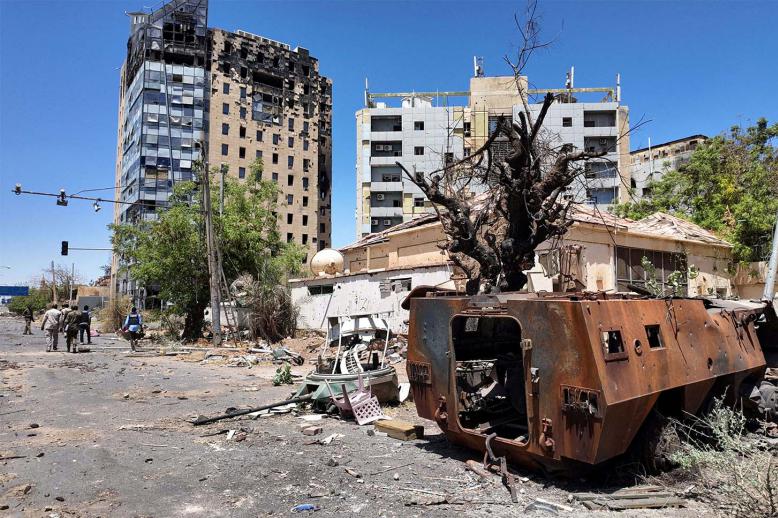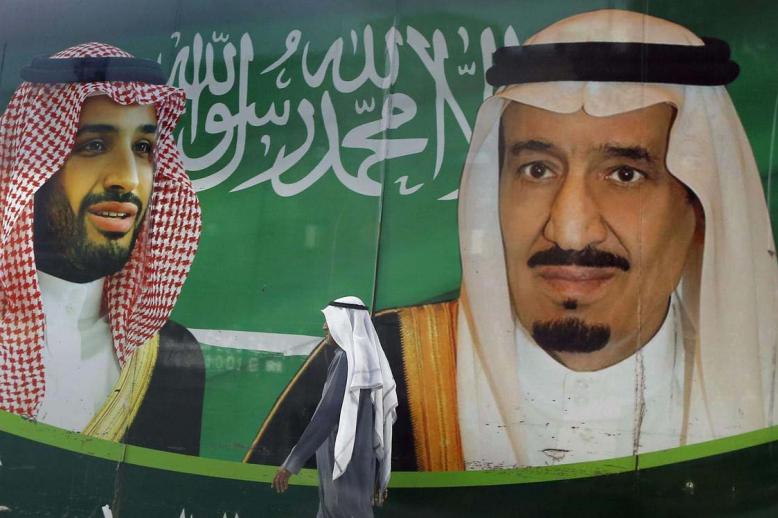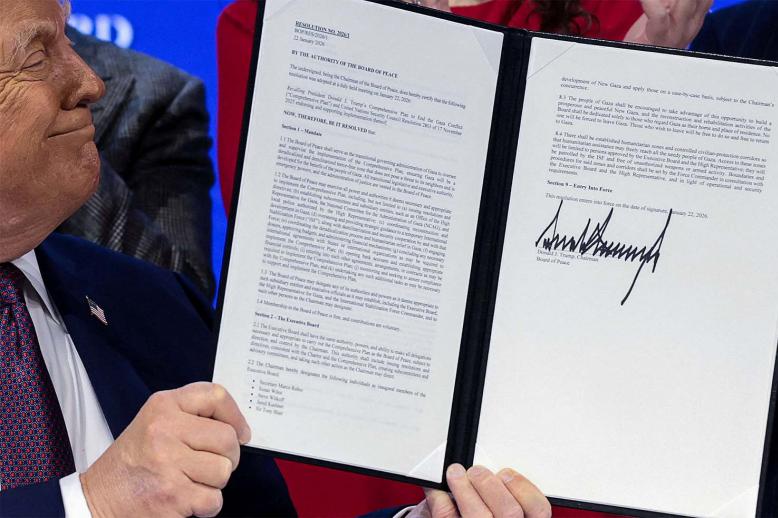International media zoom away from protests in Iraq
Beyond sloganeering and racy takes on the death of Iranian Major-General Qassem Soleimani, the world has put Iraqi voices and continuing protests on mute.
The confrontation between Tehran and Washington and the attention it commands pushed renewed violence by Iran-aligned militias against Iraqi protesters out of sight. As the war of words rages, the memory of Iraq’s 600 slain citizens grows more distant.
Across protest sites from Haboubi in Nasiriya, Tahrir in Baghdad and in Basra, balaclava-clad men fired on demonstrators and torched tents. The death toll activists cited, uncorroborated by official sources, was between three and eight. Security personnel fled as sounds of flying bullets were recorded on mobile phones.
“We also lost men in Basra, people I knew personally,” 28-year-old Hasan said. “Several dozens more were injured.”
The renewed assault on peaceful masses came after commemorative marches led by armed men affiliated to what Hasan described as “Iran-loyalists in Iraq’s Al-Hashed al Shaabi,” otherwise known as the Popular Mobilisation Forces (PMF).
They were held responsible by protesters of having helped orchestrate the death of 600 demonstrators since protests began October 1. Local media identified the men as members of the Tehran-backed Kata’ib Hezbollah militia.
The fear that has taken hold is “dimming the protest momentum,” Hasan said, “but youngsters remain resolute, unshaken by events” following Soleimani’s assassination.
“It [the assassination] changes very little as far as the protest movement is concerned,” Baghdad activist Ahmad said. In a nod to these sentiments, Hassan, from Basra, agreed that “the effect is minimal,” stressing that, state-embedded actors placed targets on civilians they regard as the enemy. The protests have become the biggest destabilising threat to Iraq’s system of sectarian apportionment.
“The international community’s indifference has been consistent, now as much as then,” Hassan said. The generation steering change in Iraq is too young to recall the cover of legitimacy Western outlets provided to the Bush administration and its unlawful war but they are aware of self-serving reporting that glosses over the haemorrhaging of Iraqi lives.
Ahmad in Baghdad said that, if media attention turns away from a movement having to walk a razor-thin tight wire, “it could weaken the force of the revolution.”
“This is why many of us have taken it upon ourselves to disseminate the facts,” he said.
Indifference is only one face of the reporting about Iraq. The other is falsification.
Important distinctions between paramilitaries and protesters are often collapsed. The first instance of this was the coloured coverage of the PMF’s storming of the Green Zone, site of the United States’ largest embassy. The second occurred during militia-led processions after Soleimani’s death. Army fatigues, slogans and flags offered indispensable clues that mainstream reporting chose to ignore, blurring the lines between civilians and armed combatants where the former is killing the latter.
“Tahrir protesters are modest folk. They are not media-starved and the attention they receive or don’t is insignificant,” Ahmad said. He shared news releases issued from Tahrir that make this plain to see. As international headlines obsess over the spat between the United States and Iran, Tahrir protesters and their counterparts across other provinces have not lost sight of their objectives.
Topping their list of demands is the nomination of an independent prime minister, far removed from the existing equilibrium.
“In the name of all provinces and protesters, we unanimously reject the attempt to reinstate Adel Abdul-Mahdi as prime minister,” a recent statement read. Condemnation fell squarely on Iraq’s corrupt ruling class “enabled by the muhasasa system that has plundered all the wealth this country has to offer. This is what brought us to this point,” the statement concluded.
While the media focus on the risk of war that the US-Iran showdown may ignite in Iraq, “few acknowledged the movement’s accomplishments” and “what it set in motion,” Ahmad said. As a colonial battle scape, Ahmad and Hasan agree that international outrage is least interested in Iraqi lives.
Iraqis are not united in their outrage against the dangerous phase of hostilities that the United States and Iran have dragged Iraq into, Ahmad said. It is widely held, as protesters vocalised for the past 100 days, that the spoils system transformed the population of one of the world’s richest countries into one of the poorest.
Iraq’s resources, like low-hanging fruit, have been plucked by the United States and Iran and the sentiment across protest camps contending with uninterrupted violence and pressure to withdraw from state forces is “no to America and no to Iran” as signs and slogans show and tell.
Protesters know better than to muddy their objectives by taking sides. Their loyalty is unquestionably towards their country. Demands for a shakedown of the muhasasa system and its rules remain unrelenting and subsequent months will likely witness more general strikes and demonstrations until demands are met.
Even if the media willingly or inadvertently turn off the lights on Iraqi protests, the Hollywood-coloured view of Iraq as democratic or sovereign has been shattered by the efforts and sacrifices made by Iraqis.
Nazli Tarzi is a London-based contributor to The Arab Weekly.
This article was originally published in The Arab Weekly.







